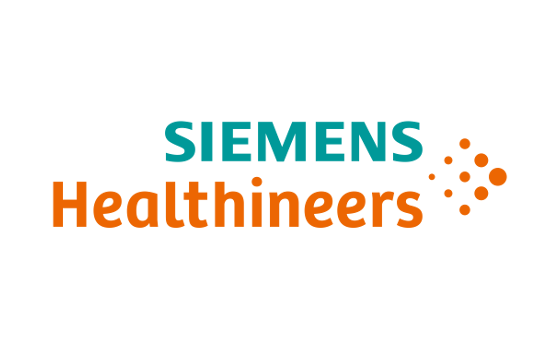 As part of their partnership, the European Society of Radiology (ESR) and Siemens Healthineers will, for the first time, offer a joint discussion platform for all aspects relating to the digitalization of radiology at the European Congress of Radiology, which will take place between February 27 and March 3, 2019, in Vienna, Austria. In the Siemens Healthineers Digital Experience Hall, experts from academia and industry will be available for open exchanges in a range of interactive discussion formats and will provide insights into their current research and development to make the influence of digitalization on the radiology of the future more tangible. The discussion topics were selected in advance by the ECR participants as part of an online survey. The respondents chose artificial intelligence (AI), big data and augmented and virtual reality. Visitors to the Siemens Healthineers Digital Experience Hall will be able to, among other things, experience augmented reality solutions firsthand and create their own AI applications.
As part of their partnership, the European Society of Radiology (ESR) and Siemens Healthineers will, for the first time, offer a joint discussion platform for all aspects relating to the digitalization of radiology at the European Congress of Radiology, which will take place between February 27 and March 3, 2019, in Vienna, Austria. In the Siemens Healthineers Digital Experience Hall, experts from academia and industry will be available for open exchanges in a range of interactive discussion formats and will provide insights into their current research and development to make the influence of digitalization on the radiology of the future more tangible. The discussion topics were selected in advance by the ECR participants as part of an online survey. The respondents chose artificial intelligence (AI), big data and augmented and virtual reality. Visitors to the Siemens Healthineers Digital Experience Hall will be able to, among other things, experience augmented reality solutions firsthand and create their own AI applications.
Digitalization has, for several years now, been a major topic at every radiology congress. Given the growing importance of big data applications and artificial intelligence - Siemens Healthineers has already launched 40 AI-based solutions and secured around 500 machine learning patents - a wide range of predictions are circulating regarding the significance of the potential changes for the occupational profile and range of tasks of radiologists. But what will the real consequences of increasing digitalization be for their daily work? This is what the ESR, together with the congress participants and Siemens Healthineers, wants to find out at ECR 2019. The Siemens Healthineers Digital Experience Hall offers visitors the chance to discuss the opportunities presented by digitalization in radiology for physicians, healthcare professionals and patients, as well as to address the subject of digitalization for healthcare as a whole. In the hall, the speakers will provide insights into their latest development work and present new innovative technologies, such as a digital twin of the heart. In addition to a wide range of discussion formats, numerous visionary application examples will be able to be both experienced and understood with all the senses.
"The digitalization of healthcare is essentially a fundamental transformation process that will affect every one of us. There are currently three major paradigm shifts taking place, each influencing the other: More precise diagnostics and therapies leveraging large amounts of data, a more active role for patients, and the growing importance of digital technologies such as artificial intelligence. Only those who understand and approach these transformation processes actively will be able to shape the future of healthcare," said Christoph Zindel, President of Diagnostic Imaging at Siemens Healthineers.
"We are very pleased that Siemens Healthineers has not only placed the future topics of radiology - digitalization, artificial intelligence, big data and augmented reality - at the forefront of its corporate focus but is also giving our congress guests the opportunity to talk to both renowned medical technology experts and one another about the development of their discipline at ECR 2019. Today, I would like to invite all ECR participants to visit the Siemens Healthineers Digital Experience Hall to discuss the opportunities presented by digitalization in radiology and to experience innovative digitalization applications for themselves," said ESR President Professor Lorenzo E. Derchi from Genoa, Italy.
The Siemens Healthineers Digital Experience Hall is located right next to the entrance to the Austria Center Vienna and will be open from Thursday, February 28, 2019, to Saturday, March 2, 2019, from 10 a.m. to 6 p.m. In addition, Siemens Healthineers will also be showcasing a broad overview of its current digital products and all its novel medical imaging developments at Booth 511 at the ECR industrial exhibition in Hall Expo X5.
About Siemens Healthineers
Siemens Healthineers enables healthcare providers worldwide to increase value by empowering them on their journey towards expanding precision medicine, transforming care delivery, improving patient experience and digitalizing healthcare. A leader in medical technology, Siemens Healthineers is constantly innovating its portfolio of products and services in its core areas of diagnostic and therapeutic imaging and in laboratory diagnostics and molecular medicine. Siemens Healthineers is also actively developing its digital health services and enterprise services.In fiscal 2018, which ended on September 30, 2018, Siemens Healthineers generated revenue of €13.4 billion and adjusted profit of €2.3 billion and has about 50,000 employees worldwide.
About The European Congress of Radiology (ECR)
The European Congress of Radiology (ECR) is the annual meeting of the European Society of Radiology (ESR), which represents more than 101,000 members worldwide, the European Federation of Radiographer Societies (EFRS) and the European Society for Hybrid, Molecular and Translational Imaging (ESHIMT). The ECR is one of the largest medical congresses in the world, attracting more than 28,000 congress participants. With 300 companies exhibiting across more than 26,000m², its exhibition is also one of the largest medical exhibitions in Europe.